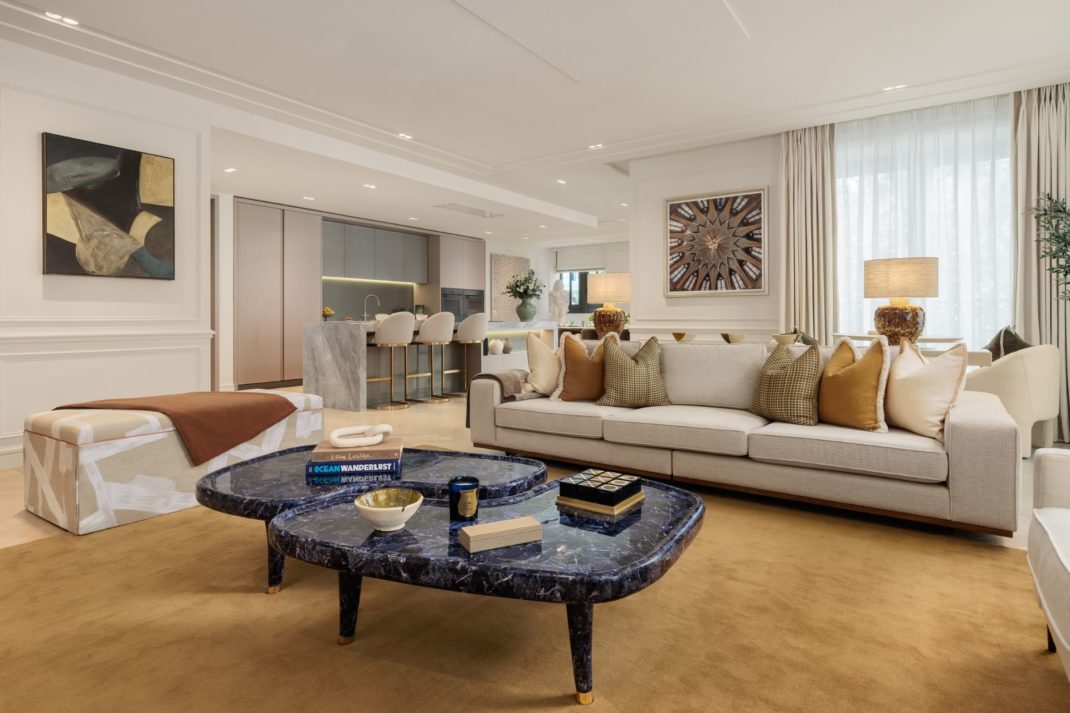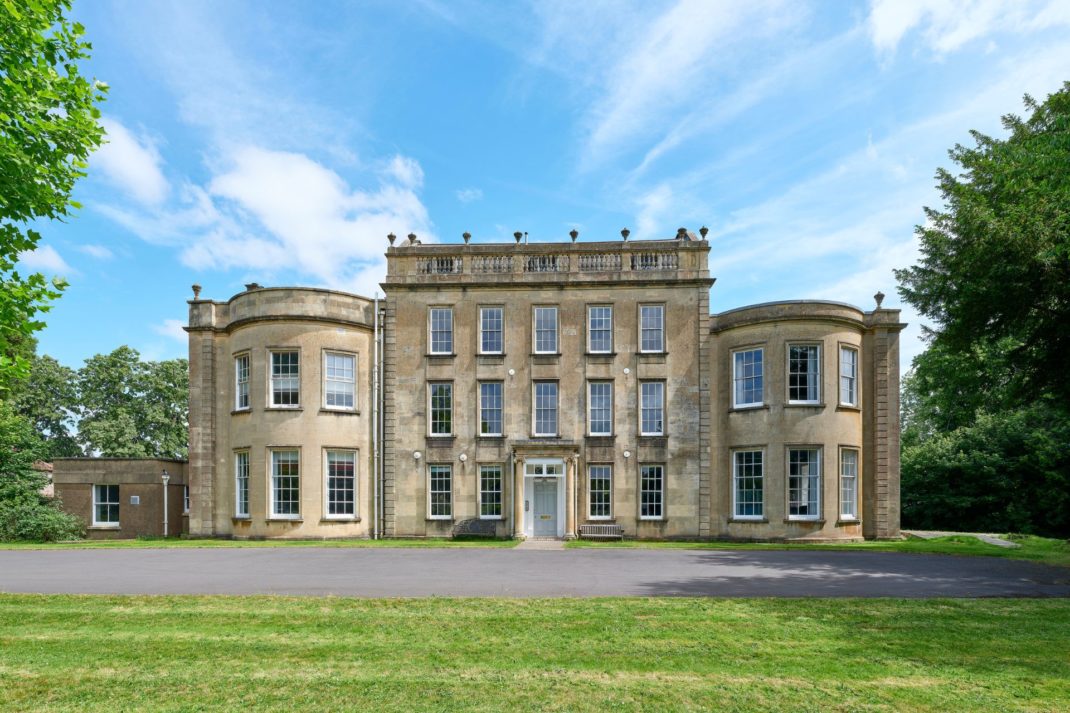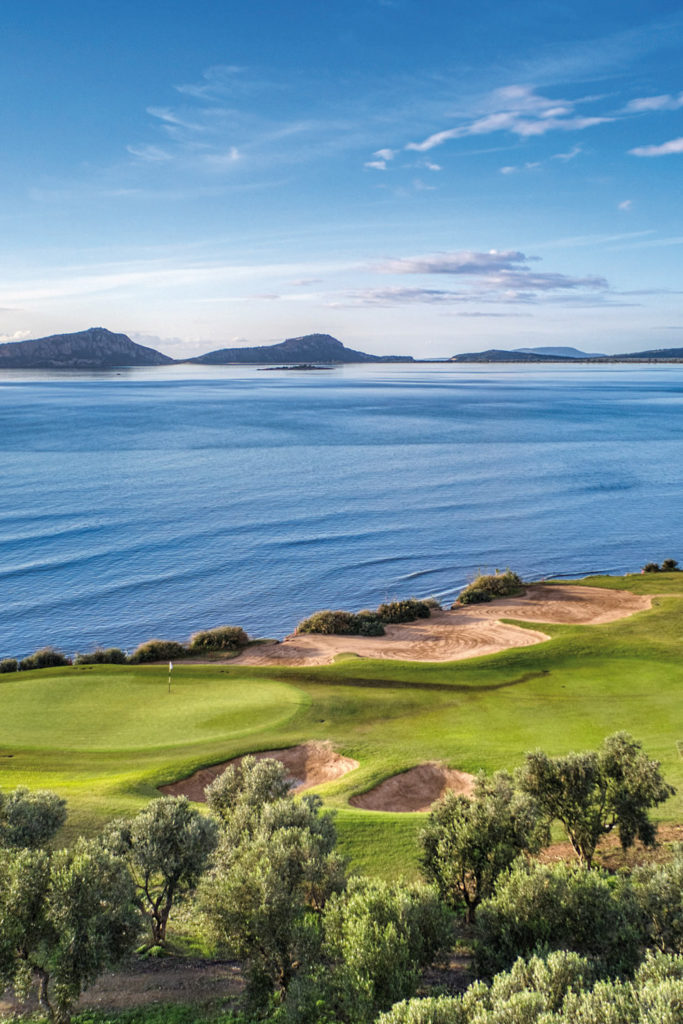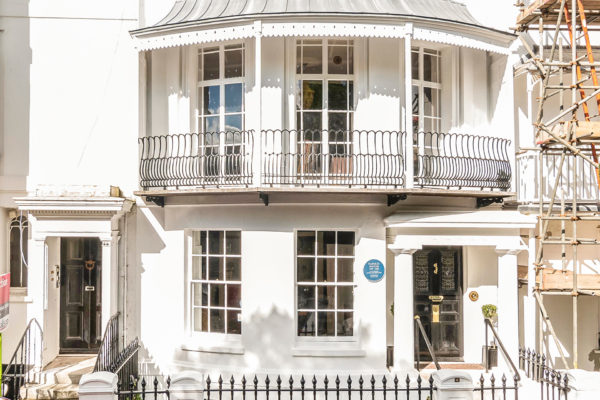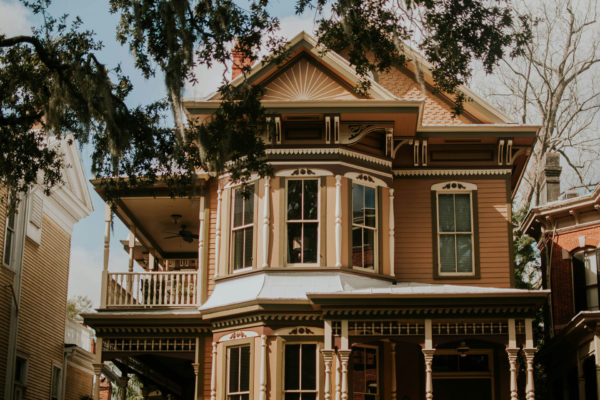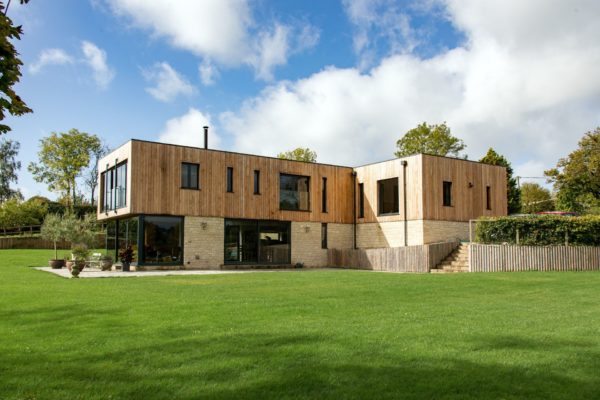How Can We Make Luxury Property Sustainable?
By
1 year ago
An interview with Alex Michelin and Matthew Robertson, co-founders of sustainable property developer Valouran
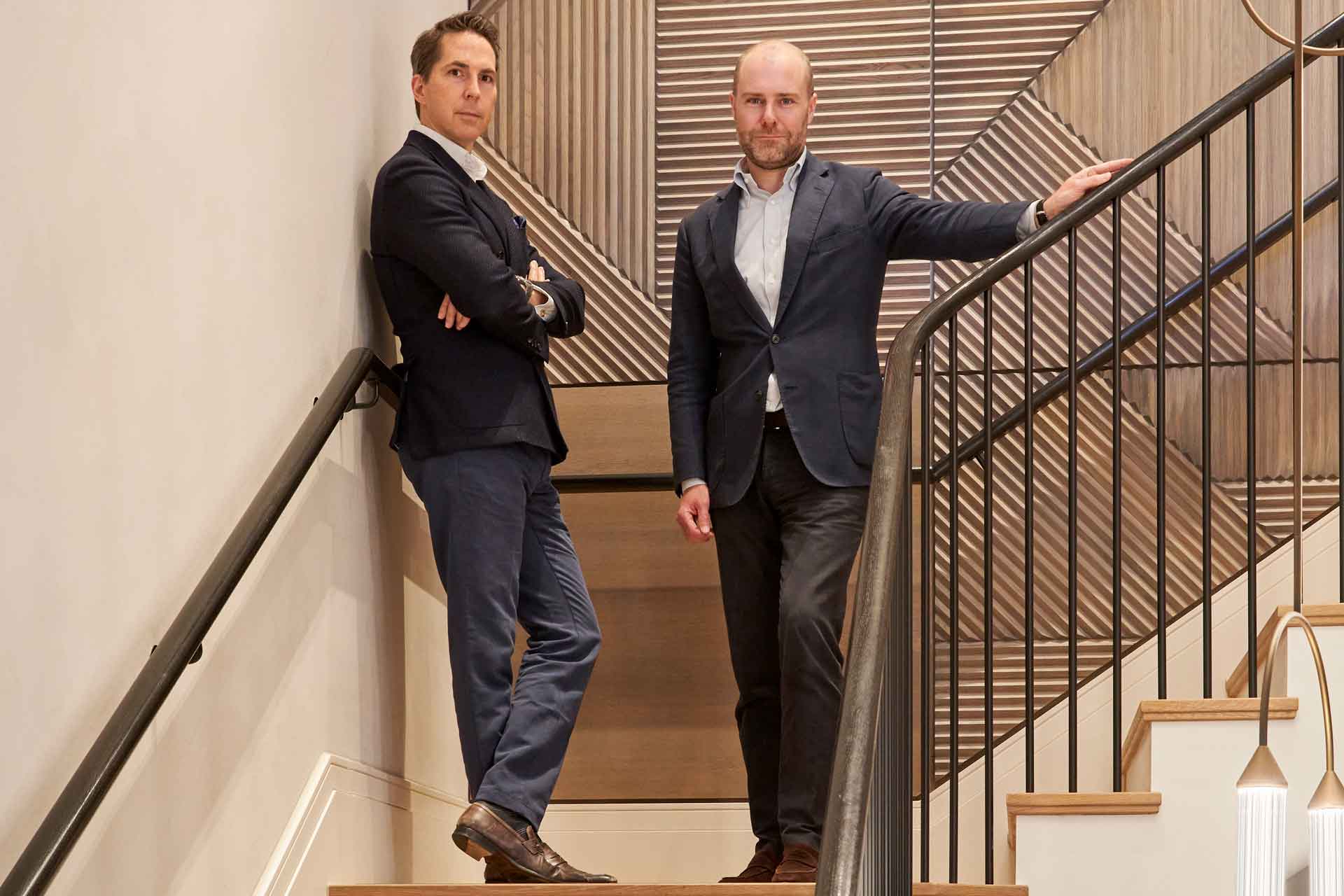
Take one look at a glittering luxury development and your first thought might not be the word ‘sustainable‘. But with the built environment responsible for approximately 42 per cent of global carbon emissions every year, the property sector certainly has a key role to play in moving towards more planet-conscious practices. The question is, where does super prime property fit in? More affluent buyers might be on the market for particularly extravagant homes, but they’re also able to afford the innovative, cutting-edge features – and sustainable tech – that other house hunters aren’t in a position to prioritise. With all of this in mind, Martha Davies sat down with Alex Michelin and Matthew Robertson, the co-founders of Valouran, a pioneering developer and placemaker with sustainability at the core of its ethos. They discussed current projects, the vision for Valouran, and how the super prime sector can provide the blueprint for sustainable property.
Interview: Alex Michelin and Matthew Robertson, Co-Founders Of Valouran
Hi guys! Can you tell us a bit about your vision for Valouran? What was the drive behind it, and why now?
Alex: We set up the business a couple of years ago, and very much core to the founding principles of the company was to do sustainable development in a way that I don’t think most developers in prime central London are doing. When we first start designing a project, we come into it thinking about how we’re going to be sustainable, rather than thinking about revenue or maximising profits and then sticking sustainability on the side. So it’s a very different approach. We had been successful in our previous venture and it was all very good, but I think the way that company approached things was very much about profit first, and sustainability wasn’t really thought about, and we feel like that needs to change.
Clearly, the property industry has a huge responsibility in terms of global carbon emissions – you know, embodied carbon, the pollution that buildings emit – so we wanted to do it differently with Valouran. What is very different about us and the vision for the company is that from the moment we start what we’re going to build, we’re thinking: how can I reclaim the greywater? How can I make sure there’s no plastic in the building at all, in any building materials, as well as when people use it? How can we make sure that people use filtered water so that they don’t have to buy bottled water? How can we make sure that all the materials are sourced locally? It goes on and on. But these are the questions we ask the team from day one – and when I say team, I mean our internal team but also our architects, our engineers, and the entire supply chain and the professional team. That’s the brief for everyone.
So, from inception, what we want to do is create buildings that are super sustainable and that we all feel very really proud of. And of course we also ask whether we actually need to knock a building down. That’s a big topic at the moment in London: do you actually need to demolish these buildings, or can you just repurpose what’s there?
Matt: We do specialise in preserving existing buildings, retaining existing façades and incorporating modern methods of construction into buildings. An example is our project in Bishop’s Avenue, which has a specially-retained façade, and our project in Brook Green is a conversion of a Victorian school house, so we’re reducing the carbon by using the existing structure wherever we can. But then, for example, in Brook Green, we’re working with a specialist heritage sash window supplier, so it’s all about thermal efficiency and airtightness and acoustics, but still with a heritage angle. All of this means that we’re preserving the façade: we’re not using lots of new concrete and plaster to build a big shiny new building, we’re preserving what’s there and bringing it up to a 21st century standard and beyond.
Sustainability is, of course, central to Valouran, but how do your buyers interact with the concept?
Alex: We definitely see it from our client base. The kind of people buying our real estate, you know, it’s now probably the first or second thing they asked about the property; I’ve been doing this for 25 years and people didn’t even mention it until probably five years ago. But it’s quite interesting to see that, for these quite wealthy people, it’s really important to them now. They really want to make a change and understand how our properties are sustainable and what we’ve done, so they can feel like their carbon footprint is reducing and they’re being sustainable in their lives. So I think that change is being driven through all parts of the supply chain, as it were, which is really good, and certainly better for the planet.
Sustainability and super prime property can feel like oxymoronic concepts. How do you see them working together, and how do you bring them together in your projects?
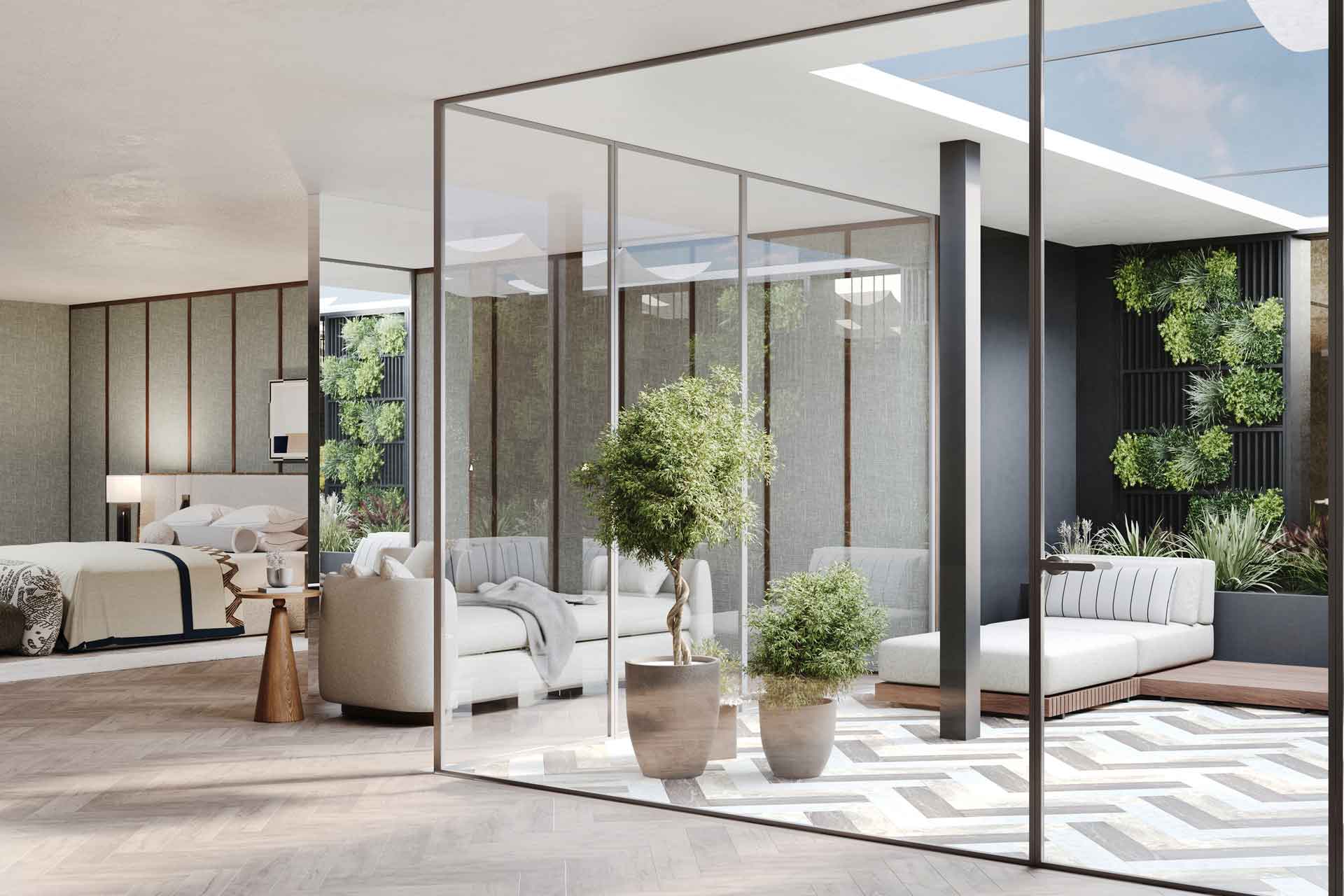
The Chapel, Valouran’s project in St John’s Wood
Alex: I agree – when you think about the two things, you think, hang on, they just don’t go together. But actually what I’ve found in my career is that, often, luxury property is what drives the change, because most wealthy people can afford to pay more. They’re not worried about the investment value; they just want it because they like it and because it speaks to them and the way they want to live their lives.
When it comes to sustainability, I believe that we’re seeing the same thing. As I say, you know, we have many clients who are worth lots of money, and they are driving change. They want to come into buildings where it’s super energy efficient, and it’s got an EPC of A, and all the appliances have energy certificates of A; and, you know, it’s got air source heat pumps too, and it’s off grid and it’s got solar panels. I do think it’s very positive that these people are willing to invest money into these things, because if the technology is installed in these high-end homes, it makes the technology better and better, and it can then become cheaper and more widely produced. So I think it’s really important that these people are willing to say, you know, we don’t really care, sometimes, how much it costs to do these things. We just want to do it because we want a lower carbon footprint.
Valouran’s name is derived from the concept of valour, so the idea of strength and courage is central to your mission. With this in mind, what do you feel is the biggest challenge you’re facing within the property sector right now?
Alex: The biggest challenge is planning, without a doubt. Planning in this country is widely reported to be in a pretty poor state. It’s very difficult to get planning consent for things, and it takes a very long time to get planning consent. There are all sorts of people who can object and create obstacles, you know, because they might have some little gripe about something, and it stops a major redevelopment of some corner of London or Britain or whatever. So that’s the biggest challenge by far, and it’s something that we all contend with daily. That would be my biggest gripe. But in terms of the market itself, it’s good; buyers are coming, people want to live in the UK, people love property in UK. Domestic buyers seem to be able to afford to buy the right sort of thing, within reason. There is money around, and interest rates should be coming down, so the market is not bad, and in fact it’s quite buoyant. The biggest difficulty is just planning and how long it takes.
Matt: And that’s not necessarily, you know, a plea for widespread reform of the whole system, as I think everyone is focused on that, and that’s such a big task that it just never gets done. The fundamental issue – on my part, anyway – is that, since the global financial crisis, and austerity, and central government reduction in funding to local government, it’s been about the number of planners, the number of people who work in the planning departments. I think that what’s important is a greater allocation of resources from the center to local government, to give these planning departments the adequate resources and the adequate personnel to just process the applications – that would make a huge difference. We’re not asking to rewrite the rulebook per se, it’s just about having the right number of people in the room to deal with the volume of applications that come through in a timely fashion.
On the flip side, is there anything you feel really optimistic about?
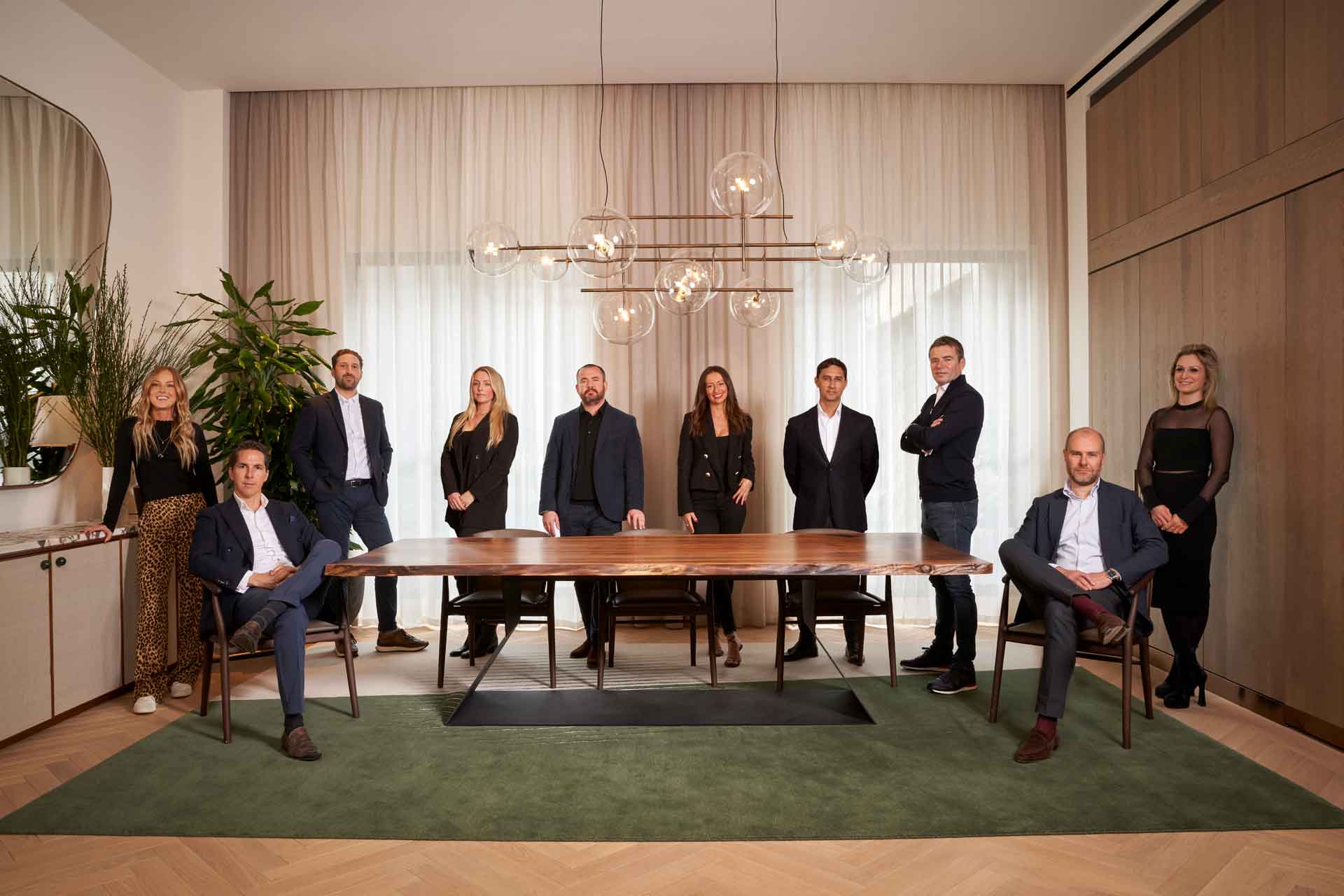
The Valouran team
Alex: Well, I think that some of the initiatives that the government is doing around sustainability are good, and they’re forcing real change in the way people are thinking about buildings – particularly in office spaces, where it looks like it’s going to be illegal to let an office in 2030 unless it has an EPC rating of B or above. That’s a big ask, but the property industry is really getting their arms around this problem and working out how to do it. Of course, the government has indicated that they might back track on some of it, but I hope they don’t, as that’s something I’m personally very positive about, and I think it’s a good change for us all.
One thing we do specifically which I really love – it’s one of the best bits of my job – is that we have a real thing about biophilia. In our apartments, we design spaces where you will have green plants in all of the main rooms. That’s the bit that I enjoy the most, probably, in our job: choosing these amazing plants, which are part of interior design in a way that they never were ten or 2o years ago. We know that plants are better for people’s wellbeing and mental health, and we’re now incorporating them into the design of our apartments. It’s amazing how things like that have changed, and I think we’re all really trying to bring nature back into our lives because we’ve realised how good it is.
Any other exciting projects in the pipeline?
Alex: We’ve got lots of exciting projects. One of my favorites is a listed chapel building in St. John’s Wood, which has been through various guises: it was a squash court, and then it was used for storage, and we’re now repurposing it as homes – again, to Matt’s point, you know, we’re retaining that façade; we’re doing everything we can to be sustainable about using the current building whilst also bolting on all of the technologies and sustainable aspects that you can do today. And that’s going to be a fantastic building: the volumes are incredible, the ceiling heights are amazing, because it’s a chapel, of course. It’s not the biggest thing we’re doing by any means, but in terms of a lovely piece of jewelry, you know, in a development, it’s perfect – it’s got a great garden; we’re doing green roofs; most flats have balconies and external spaces,; the internal biophilia is amazing. So that’s a really exciting little project.
Could you touch on how you look to improve the quality of life around your schemes, as well as for those living within the schemes?
Alex: Not only do we think about sustainability in our schemes themselves, but we also look at the ESG around the scheme. So we think about how our scheme is going to sit in the setting, in the town or the street, wherever it is, and how we can improve the lives of the people around it. We often think about the public realm improvements we can make– can we, say, make the internal gardens public, so that more people can enjoy them? Even if that’s maybe only during the daytime hours. We’re also looking at how we re-green the streets we work on; one big project we’re doing in Bayswater is planting 60 trees along the street, so the entire street is being redone. We also try to hire tradesmen and apprentices from within the local community so that we can make sure that the benefits of our developments are accrued by the communities surrounding them. That’s key for us as well.
Is there anything else important that you’re focusing on right now?
Matt: One thing we’re looking at – and it’s something that’s common in office spaces, but less so in multi-family residential buildings – is the use of cross laminated timber as a structural element, rather than using big concrete frames. It’s in use at one of our office projects, actually: by going for a CLT frame there, we think we’re going to save circa 500 tons of embodied carbon across the whole project as opposed to doing the traditional concrete frame. The challenge we’re having with morphing that technology into multifamily residential places is fire safety, because it’s obviously timber rather than concrete. But we’re trying to be at the cutting edge of that and trying to lead the way on the regulations to move that forward. So that’s an area of interest for us.
Alex: Across all our projects, we’re really trying to make our buildings plastic free. We’re also trying to reuse all of the greywater where possible, so that means that we have these huge tanks – which cost a lot of money – but we’re reclaiming all the water from showers and basins, and we then have that treated and we try to reuse it to water the plants and the gardens and the landscaping, so that we’re being super efficient. Everything has air source heat pumps now, too; we’re well ahead of that, and we’ve been doing it for years. Solar panels also go on all of our roofs. We make sure that, essentially, everything is sustainably sourced; with building materials, we have guidelines for our contractors – again, we’re pushing our supply chain and all of the people working on the site to be very green and very efficient.
We’re actually doing some stats on it at the moment and we think that we get our buildings 50% better than the regulations required. So quite a substantial upgrade to what you by law you have to do – we’re significantly better, and that’s a result of all of these initiatives that we’re putting in place. So, you know, we really are walking the walk and not just talking the talk, I suppose. And I think it’s the future – I think everyone else will start doing it as well. It does mean that our construction costs are probably a bit higher; being candid, it does mean that we probably spend more on the buildings. But we think it’s a worthwhile investment, because actually people will pay more for the property and the properties are worth more because they’re more sustainable and more energy efficient.
For more information, visit valouran.com

